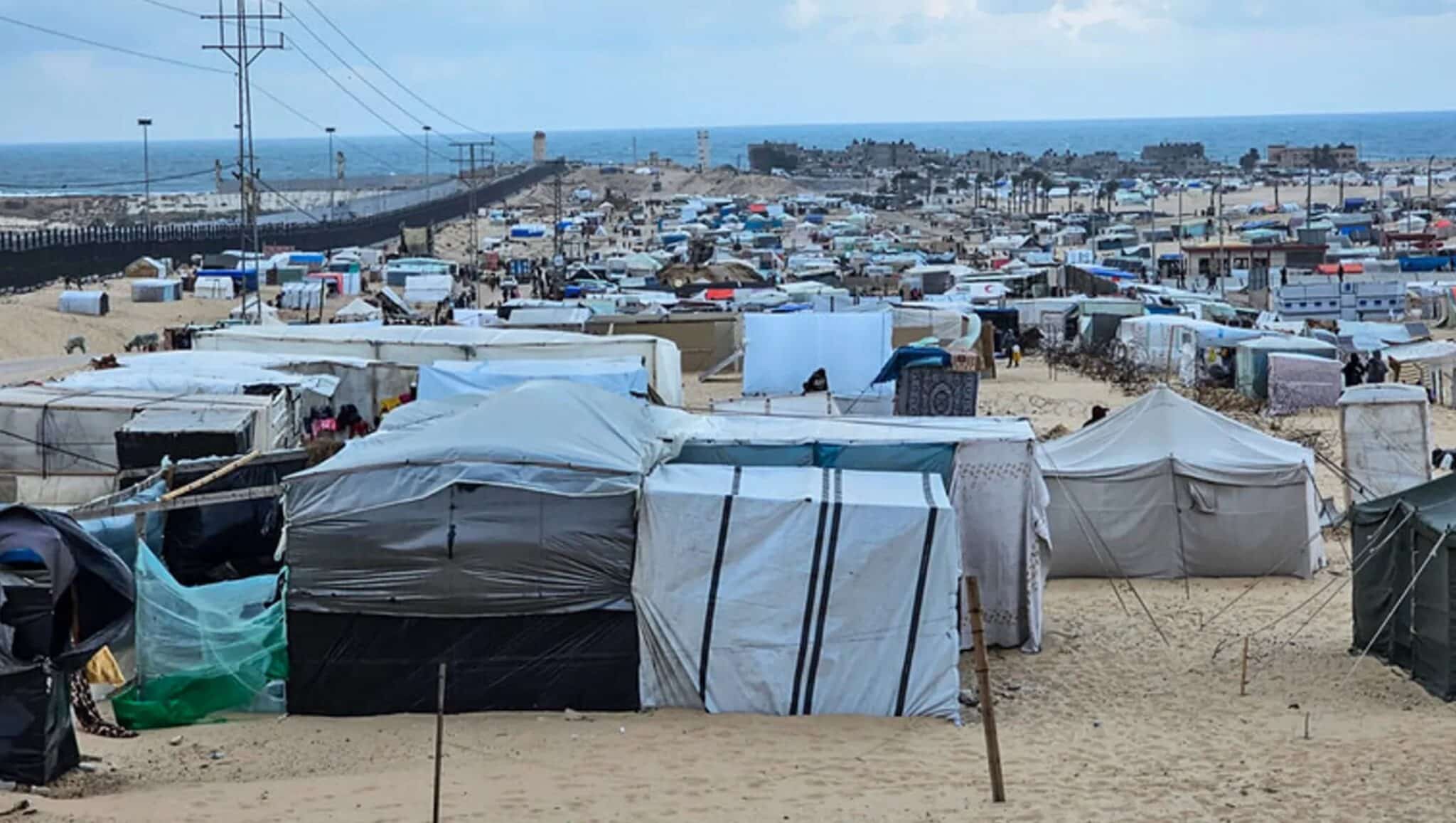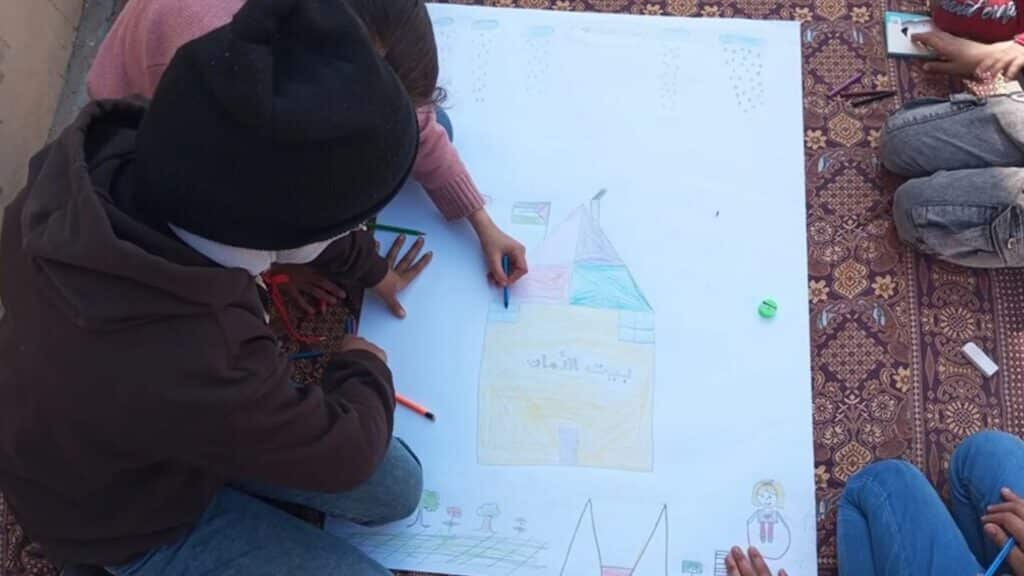CAFOD warns of terrible fallout if Israel’s new Rafah offensive continues
Britain’s leading Catholic international aid agency has spoken out after Israel launched a new military offensive on Rafah in the southern part of Gaza on 7 May. The Gaza-based local partner of CAFOD, the aid agency of the Catholic Bishops’ Conference of England and Wales, described the current situation in Rafah as a “cut and The post CAFOD warns of terrible fallout if Israel’s new Rafah offensive continues appeared first on Catholic Herald.

Britain’s leading Catholic international aid agency has spoken out after Israel launched a new military offensive on Rafah in the southern part of Gaza on 7 May.
The Gaza-based local partner of CAFOD, the aid agency of the Catholic Bishops’ Conference of England and Wales, described the current situation in Rafah as a “cut and paste” kind of terror.
It explained that “families already traumatised from being moved four, even five times, are being torn apart again and forced from one shelter to another”, adding that there are no safe places in Gaza to which people can flee.
Since the start of the main Israeli offensive in response to the Hamas attack on 7 October 2023, more than 34,000 Palestinians have been killed, among them 13,000 children, CAFOD reports. Thousands more people are missing and over 74,000 are reportedly injured. The UN reports that over 60 per cent of housing units in Gaza are destroyed or damaged.

“Our partner’s local Rafah office had to be dismantled and moved several miles away, draining resources and precious time that should be spent getting essential aid to people who are starving,” says Elizabeth Funnell, CAFOD’s Middle East representative. “Fuel shortages further compound this crisis, with only two days’ supply remaining.”
Gaza is on the brink of famine, CAFOD warns. Since the escalation of the conflict, 1.7 million people in Gaza have been displaced from their homes, and two million are facing catastrophic levels of hunger. In northern Gaza, one in three children below the age of two are now acutely malnourished.
“Our partners tell us that the daily struggle to secure bread is exhausting,” Funnell says.
Restrictions on the entry of humanitarian aid and the intensity of ongoing hostilities are preventing access to essential food, water and healthcare, and have made the situation increasingly desperate for vulnerable civilians caught up in the crisis, CAFOD reports.
On 6 May, Israeli forces told around 100,000 people in the eastern part of Rafah to move to expanded “humanitarian areas” ahead of the offensive, Crux reports. Rafah’s population has already grown to 1.4 million people after it housed swathes of people fleeing Israeli military operations in other parts of Gaza.
The offensive into Rafah began with Israel seizing control of a key border crossing on the Gaza side of the Rafah crossing into Egypt, a key entry point for urgent humanitarian aid, and thereby cutting off most assistance coming into the territory.
At the same time, Israel military forces moved into position amid talk – and confusion – about a potential ceasefire. Hamas claimed it had accepted a ceasefire deal, though the terms it had agreed to were not clear, notes the New York Times. Israel indicated that the terms were not acceptable and that it had not agreed to them, and that the ceasefire claim by Hama amounted to a ruse.
Israel also indicated that the offensive into Rafah would continue in order to bring pressure to bear on Hamas until it agreed to an acceptable ceasefire, including the release of hostages.
“There is no way that a ground offensive in Rafah will be anything but catastrophic for civilians,” Funnell says.
As a result, CAFOD is urging the UK government “to wake up to their complicity through arms sales to Israel”, adding that the government “must exert every diplomatic effort to halt the attack on Rafah, agree an immediate, permanent ceasefire which includes the release of all hostages, ensure aid access now and restore UK funding to UNRWA”.
But some commentators have noted that UK arms sales to Israel make up a tiny proportion of its foreign-supplied weaponry and military hardware, which predominately come from the US and countries like Germany. Furthermore, it’s been noted that the degree of diplomatic influence that the UK has over Israel is questionable, especially given that the latter considers itself to be involved in a war of existential significance.
On top of that, UNRWA, the United Nations Relief and Works Agency for Palestine Refugees, has been mired in controversy following serious allegations that several UNRWA employees were involved in the horrific attacks on Israel on 7 October.
The 7 October attack and Israel’s response increasingly appears to mark a turning point in the 76-year-old conflict in the Holy Land, a point at which “something inexorably broke”, according to the Latin Patriarch of Jerusalem, Cardinal Pierbattista Pizzaballa.
At the same time, the UK has experienced a level of anti-Semitism that has left many shocked and contemplating that, in addition to the terrible events in the Middle East, something has “gone truly, terribly wrong” in Britain.
Photo: Screenshot showing overcrowded temporary settlements near Rafah in the south of Gaza. Many tents reportedly house more than 15 people, while there is no running water or proper toilet facilities. (Image from CAFOD website.)
![]()
The post CAFOD warns of terrible fallout if Israel’s new Rafah offensive continues appeared first on Catholic Herald.














